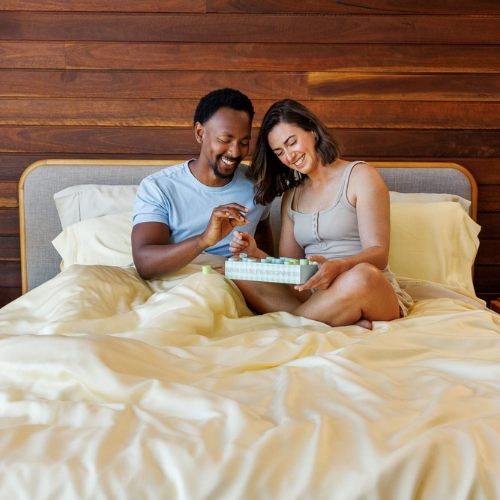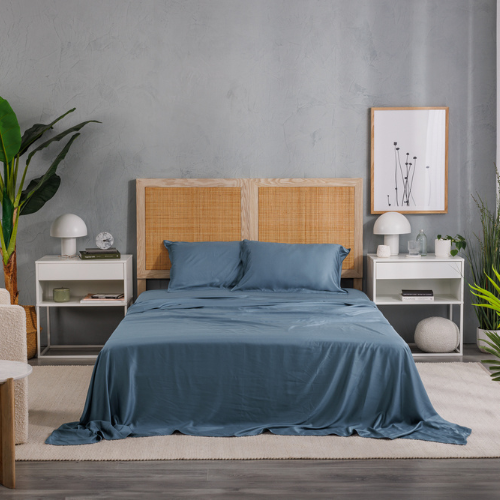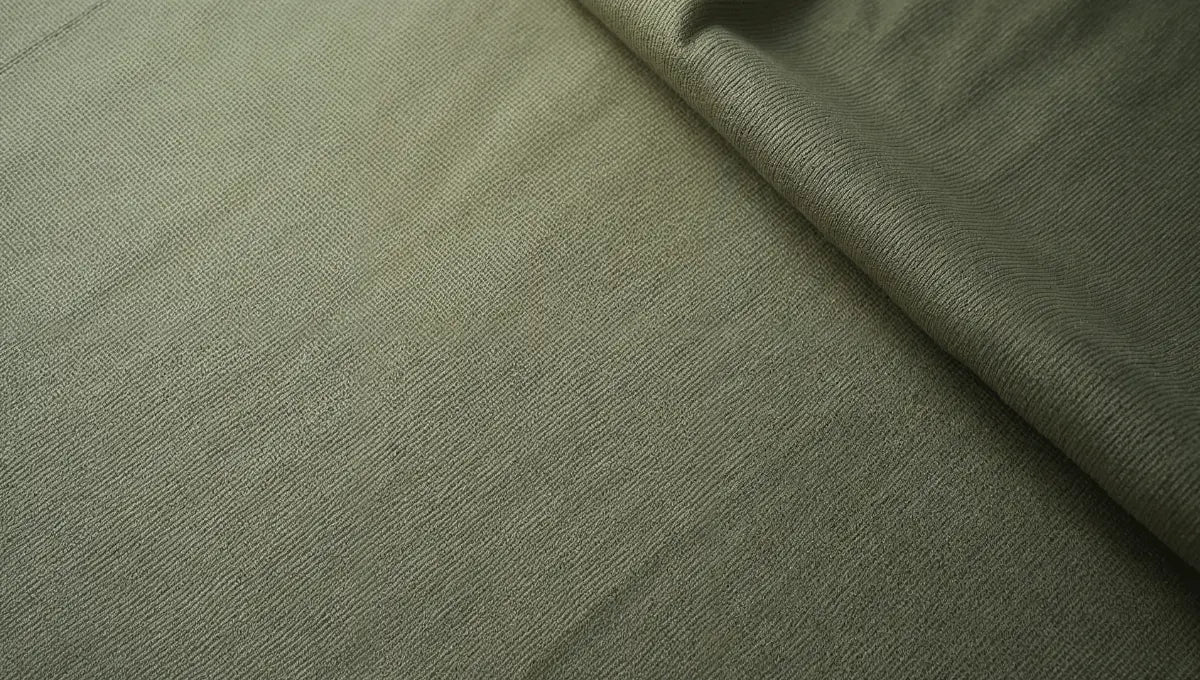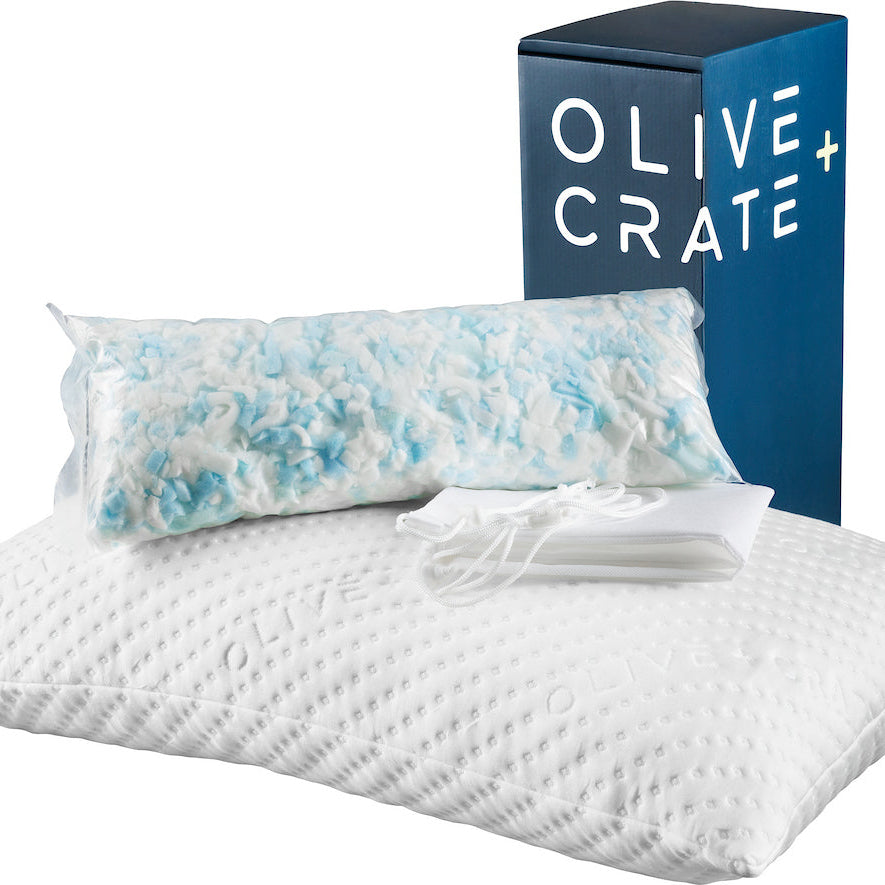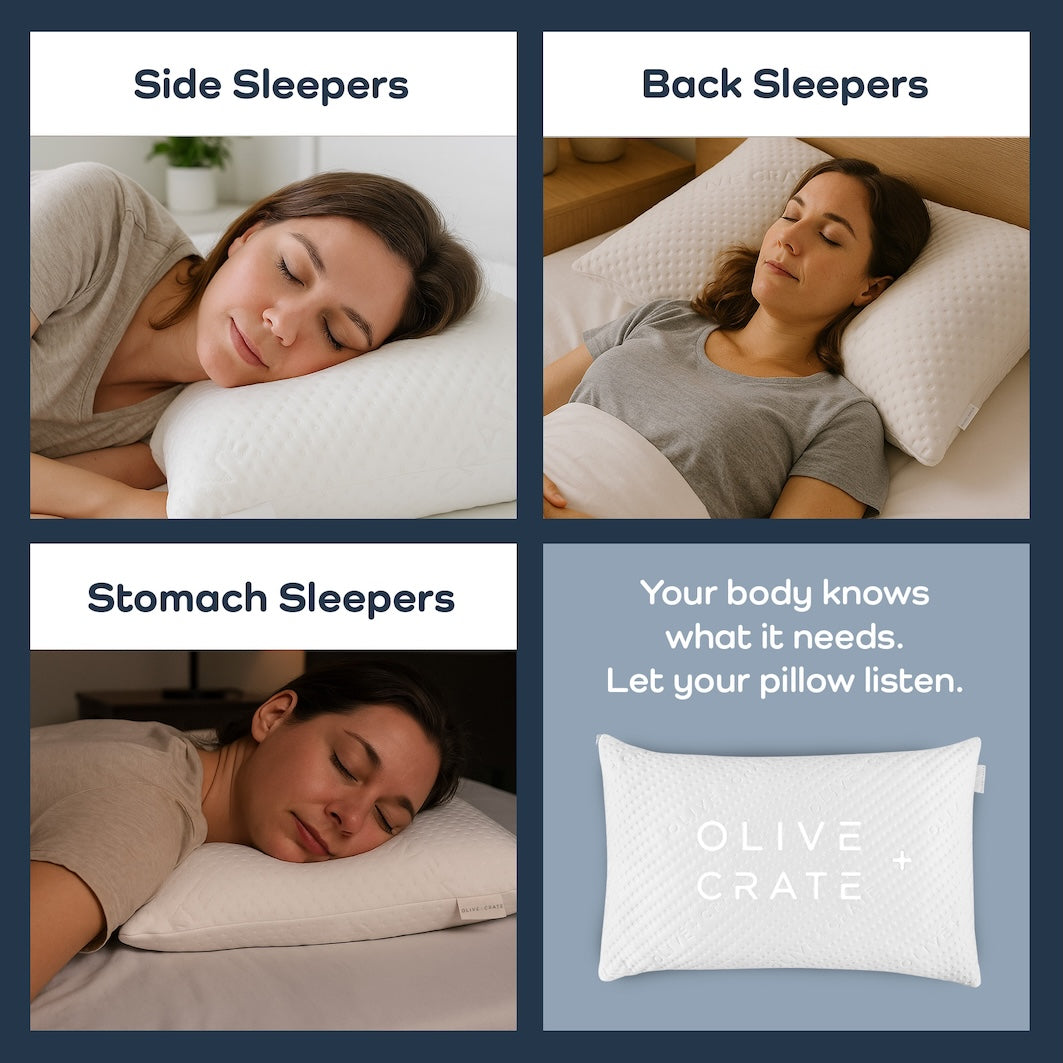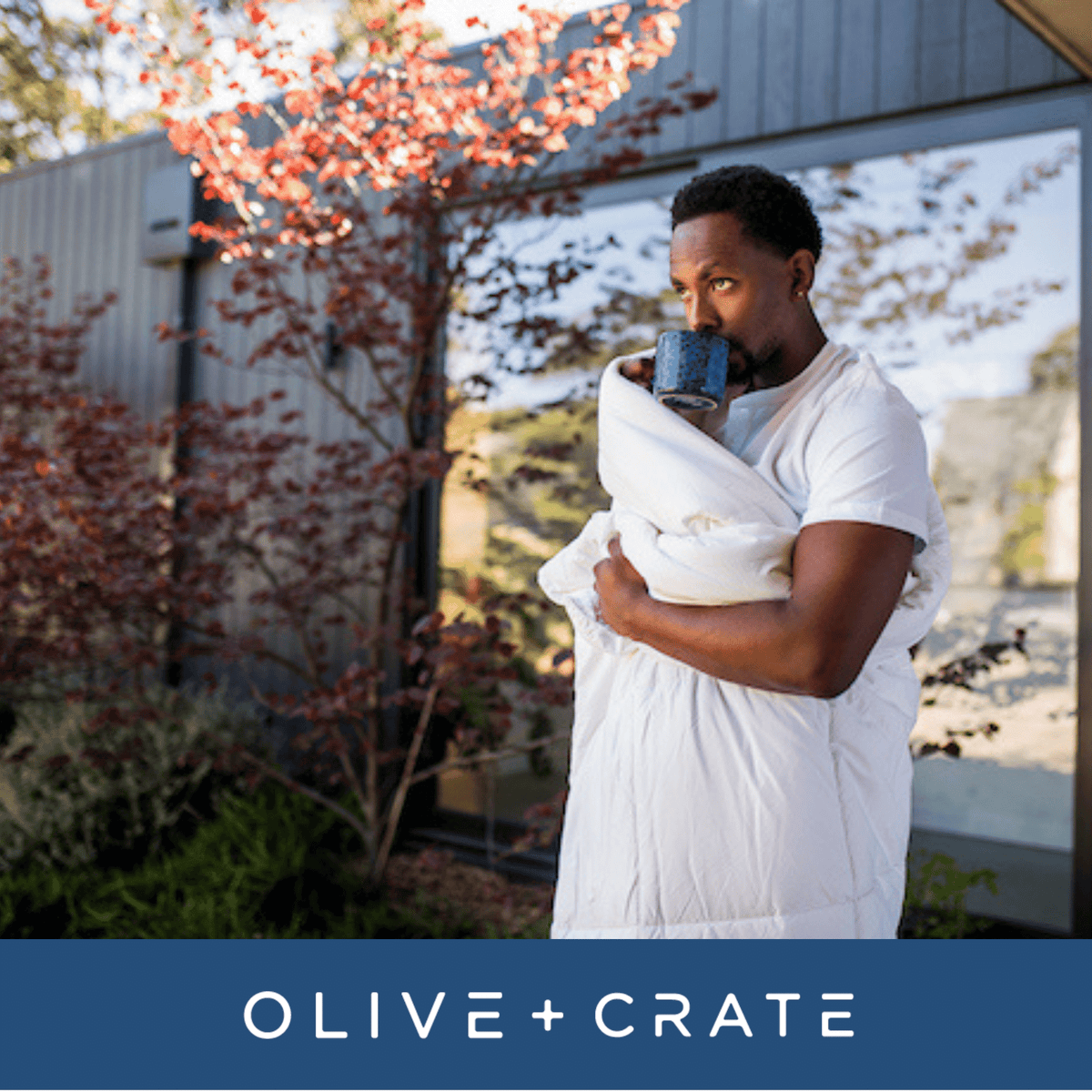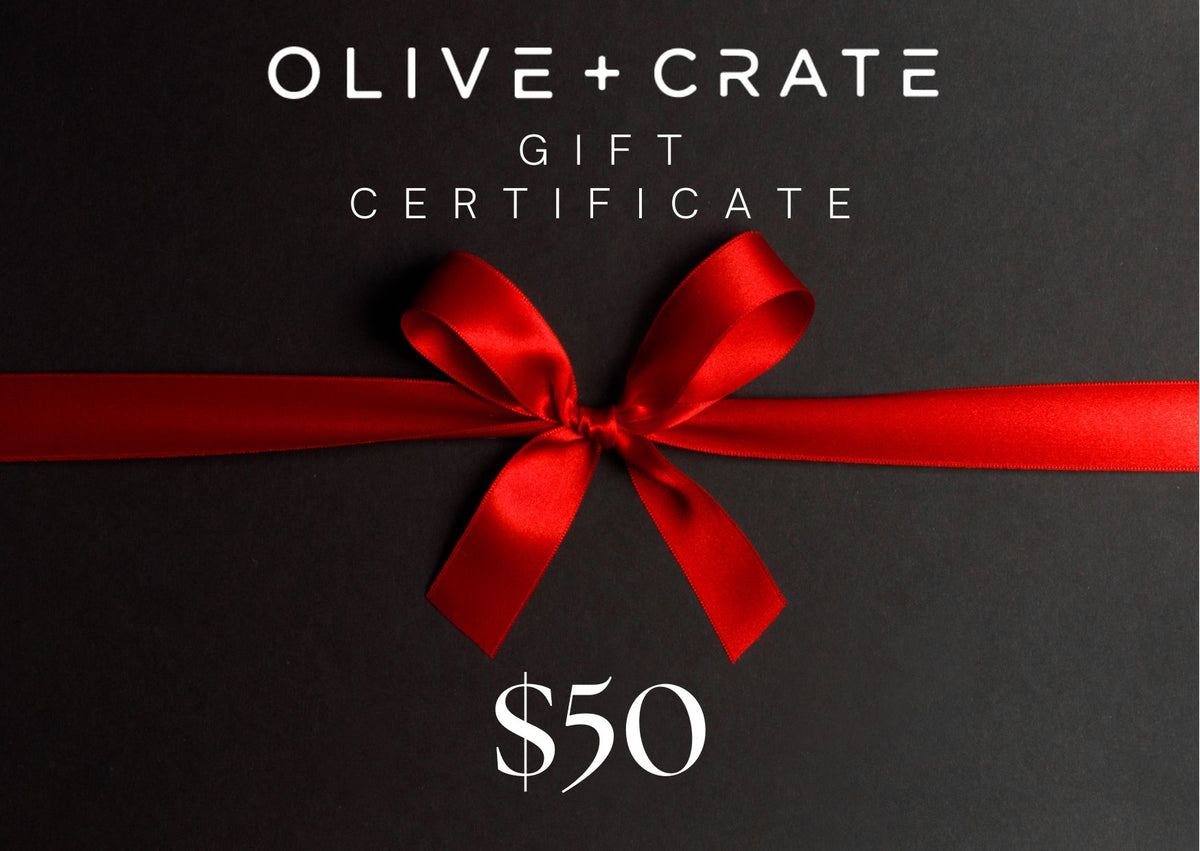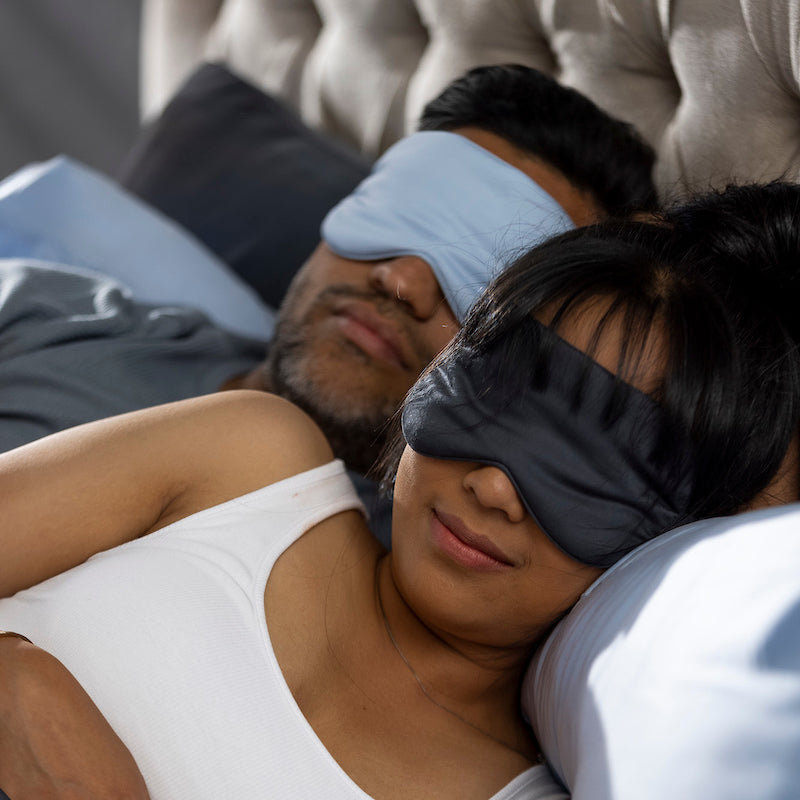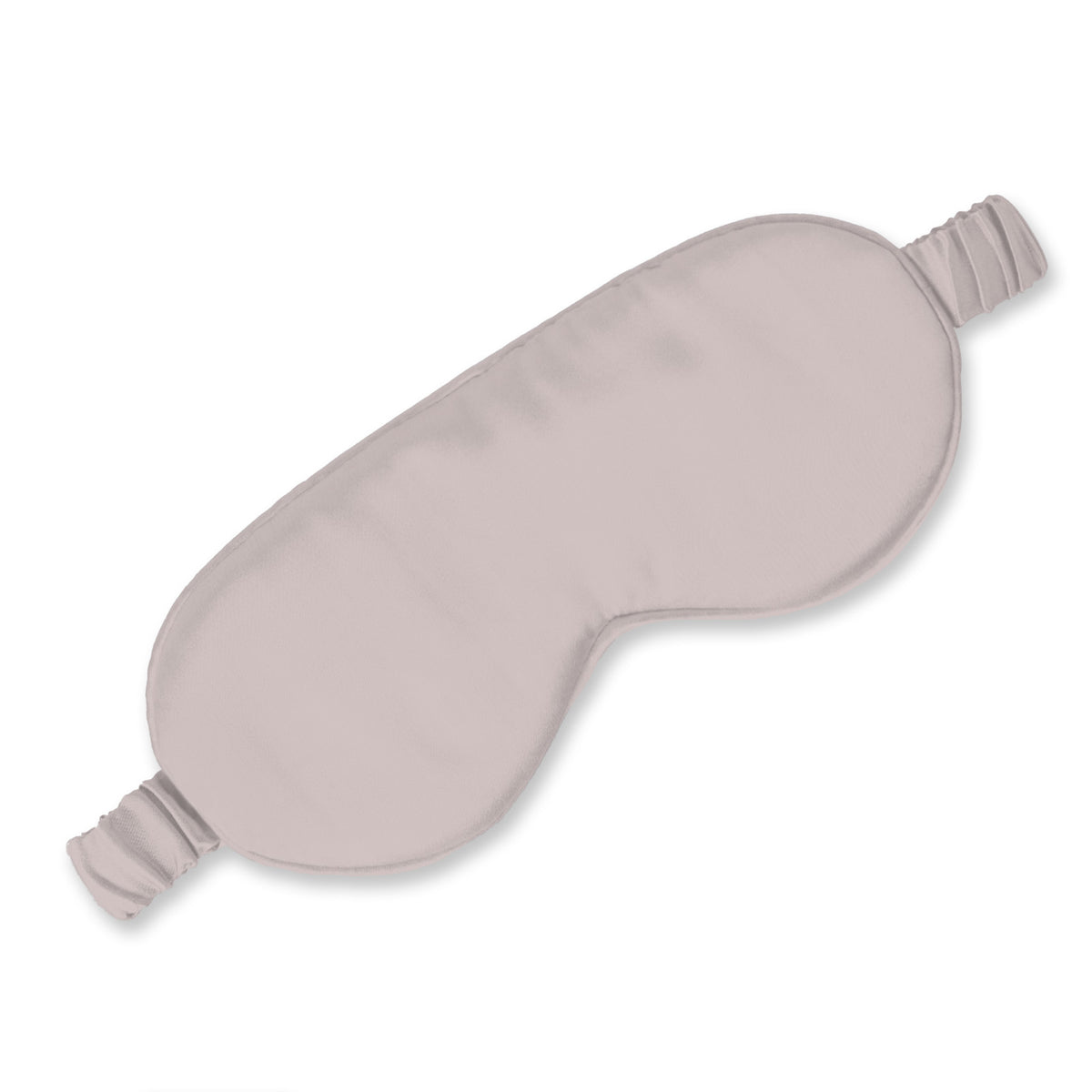Bamboo sheets are a solid, well-loved choice. They’re breathable, plant-based, and feel right for many homes.
When it comes to sheets specifically, though, some people start to look for a fabric that feels smoother, washes more predictably, and holds its shape night after night.
That’s where Tencel tends to stand out.
Key Takeaways
-
Tencel and bamboo are both plant-based, but they feel different as sheets.
-
Tencel sheets are often smoother and more consistent over time.
-
Bamboo sheets feel light and airy, especially in warm settings.
-
Cooling feels different with each fabric, depending on airflow and moisture.
-
Each material works best when matched to the right layer of the bed.
What Is Tencel Material?
Tencel is a lyocell fiber made from eucalyptus trees grown on responsibly managed farms. The trees grow quickly and require relatively little water, which makes them well suited for more sustainable textile production.
You can read more about the origins of Tencel here.
As a fabric, Tencel feels smooth and light. It drapes easily, stays cool to the touch, and sits comfortably against the skin without clinging.
With regular washing, the texture tends to remain consistent rather than softening unevenly or losing structure.
What Is Tencel Fabric Similar To?
Tencel doesn’t map neatly onto one familiar fabric, which is often why people try to compare it.
It tends to sit somewhere between:
-
The breathability of linen
-
The softness of cotton
-
A fluid drape that feels refined without feeling delicate
This balance is part of why Tencel works particularly well for sheets, where both comfort and consistency matter.
It’s also why eucalyptus fibers often appear in broader discussions around ethical and innovative textile materials.
Why Tencel and Bamboo Are Often Compared
Tencel and bamboo tend to show up in the same conversations.
Both are:
-
Plant-based
-
Breathable
-
Often described as cooling
That shared starting point is why they’re frequently compared.
The difference comes down to how each fabric is made.
Bamboo fabric is usually created by turning bamboo pulp into viscose. Tencel is produced through a closed-loop process designed for greater control and consistency.
Once used as bedding, those differences begin to feel more noticeable.
For a deeper comparison of processing methods, this breakdown of lyocell versus viscose explains why production matters as much as the source fiber.
What Is the Difference Between Tencel and Bamboo Sheets?
When comparing Tencel sheets and bamboo sheets, the differences are subtle but noticeable with regular use.
Tencel sheets tend to:
-
Feel smoother on the surface
-
Drape more fluidly across the bed
-
Maintain their texture and appearance longer
Bamboo sheets tend to:
-
Feel lighter and more airy
-
Soften quickly
-
Benefit from more careful laundering
Neither is inherently better. They simply offer different experiences.
Are Bamboo Sheets Good?
Yes. Many people like bamboo’s airy feel, especially in warmer settings or layered bedding.
Where bamboo can vary is over time. Because bamboo bedding is usually made from viscose, the final feel and performance depend on how that viscose is produced.
You can explore how bamboo compares with cotton and eucalyptus fiber in this side-by-side look at different sheet materials.
Which Is Cooler: Tencel or Bamboo?
For bed sheets, Tencel usually feels cooler for longer.
The reason comes down to how each fabric cools.
Bamboo
-
Feels airy right away
-
Allows heat to escape quickly
-
Often feels cool at first touch
Tencel
-
Manages moisture rather than airflow
-
Pulls humidity away before it lingers
-
Feels dry and even over time
If you like an immediate, breezy feel, bamboo may feel cooler at first.
If you prefer a steadier, dry feeling through the night, Tencel is often the better choice for sheets.
Tencel vs Bamboo Mattress Protector and Other Bedding
Bamboo is often the better choice for layers beneath the sheets.
It works especially well in:
-
Mattress protectors
-
Comforters
-
Other bedding layers where airflow matters more than finish
When comparing a Tencel vs bamboo mattress protector, the difference usually comes down to feel.
Bamboo protectors
-
Soft and flexible
-
Breathable
-
Easy to layer
Tencel-based protectors
-
Smoother to the touch
-
More uniform in feel beneath sheets
For sheets, however, Tencel’s surface consistency and drape tend to matter more.
Is Bamboo Better Than Tencel?
Neither fabric is better in every case.
Bamboo works beautifully in certain bedding layers, especially where lightness and breathability are key.
Tencel tends to excel in sheets, where durability, feel, and consistency are noticed most.
Rather than asking which is better overall, it’s more useful to look at how each fabric is used.
Tencel Lyocell vs Modal vs Bamboo: How They Compare
For bedding, Tencel lyocell is generally preferred.
All three fibers come from plant sources, but they’re made for different purposes.
-
Tencel lyocell is strong, manages moisture well, and tends to feel consistent over time, which makes it well suited for sheets.
-
Tencel modal is softer and lighter, often used in apparel, but less durable for frequent washing.
-
Bamboo viscose is breathable and airy, though its long-term feel can vary depending on how it’s produced and cared for.
For sheets, Tencel lyocell offers the best balance of durability, comfort, and consistency among the three.
Choosing Materials with Intention
Instead of relying on one fabric for every part of the bed, many people find a layered approach more comfortable:
-
Tencel for sheets, where smoothness and long-term consistency matter
-
Bamboo for mattress protectors and comforters, where airflow and softness support the layers below
This allows each material to do what it does best.
For those curious about this combination, our cooling Tencel sheets and bamboo mattress protector are two options designed to work well together.
A Calm Way to Choose
Comparing Tencel and bamboo doesn’t need to end with a verdict. It’s about noticing how materials behave, how they feel over time, and how they fit into everyday life.
When those choices are made with care, bedding feels less like a decision and more like a natural extension of the home.

